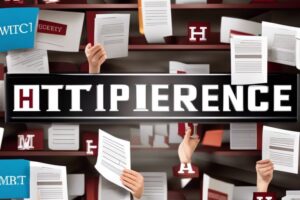Insurance Scam : Insurance is like a safety blanket we use to protect ourselves from unexpected things that can happen in life. It’s like having a shield against surprises that can be good or bad. It’s like putting your money into something that makes you feel safe and peaceful. Yet, lurking in the shadows of this financial haven are insurance scams – devious schemes aimed at exploiting the very system designed to protect us. In this complete guide, we’ll explore the tricky world of insurance scams. We’ll explain what they are, how common they are, and the different kinds that can harm your money.
1. Definition Of Insurance Scams
Insurance scams, in their essence, represent fraudulent activities orchestrated with the primary intent of deceiving insurance companies, policyholders, or both. People use tricky tactics in different areas, like faking car accidents and injuries to get money from auto insurance, or stealing someone’s medical information and charging too much for healthcare. It’s important to know about these sneaky tricks to protect yourself.
2. The Prevalence Of Insurance Scams
The tentacles of insurance scams have insidiously wound their way into the very fabric of the insurance landscape. It’s a big problem because there are a lot of them, and it’s costing a huge amount of money for both insurance companies and the people who have insurance. The bad people who do these scams are always changing how they do it. That’s why it’s really important for us to keep learning about the new tricks they use.
3. Types Of Insurance Scams

a. Auto Insurance Scams
- Staged Accidents : Crafty fraudsters orchestrate seemingly genuine collisions, intending to claim hefty insurance payouts. These accidents are carefully planned, usually with many cars and people involved, which makes it hard to figure out what really happened.
- Fake Injuries : In the aftermath of an accident, dishonest claimants exaggerate or completely fabricate injuries to maximize their compensation, driving up insurance costs for everyone.
- Exaggerated Claims : Sometimes, people make small accidents seem much worse than they really are, and they say the costs are higher than they actually are. This makes insurance companies pay more money.
b. Health Insurance Scams
- Medical Identity Theft : This insidious crime involves the theft of personal medical information to fraudulently obtain medical services or prescription medications under another person’s identity.
- Over Billing And Phantom Billing : Unscrupulous healthcare providers pad their bills with fictitious charges or inflate legitimate expenses, driving up the overall cost of healthcare.
- Prescription Fraud : Fraudsters may forge or manipulate prescriptions to acquire medications for personal use or resale, often causing health insurance premiums to surge.
c. Home Insurance Scams
- Arson And Property Damage : Some homeowners resort to arson or intentionally damaging their property to claim insurance money, putting their lives and others’ at risk.
- Bogus Burglary Claims : Dishonest policyholders may report fraudulent burglary incidents, filing illegitimate claims for stolen items that never existed.
- Contractor Fraud : Untrustworthy contractors may collude with policyholders to inflate repair costs, leaving insurance companies to foot an inflated bill.
d. Life Insurance Scams
- Stranger-Originated Life Insurance (STOLI) : In this scheme, individuals purchase life insurance policies with the intention of selling them to investors, undermining the fundamental principle of insurable interest.
- Beneficiary Scams : Some policyholders may alter their beneficiary designations without the beneficiaries’ knowledge, creating opportunities for fraudulent claims.
- Faked Death : Shockingly, some individuals may go to the extreme of faking their own death to claim life insurance benefits.
4. Warning Signs Of Insurance Scams

Identifying insurance scams necessitates a discerning eye. Here are some red flags to watch out for:
a. Red Flags For Auto Insurance Scams
- Sudden Accidents With Multiple Claimants : A collision involving multiple claimants can be a potential setup for a staged accident.
- Witness Inconsistencies : Inconsistent statements from witnesses may indicate an orchestrated accident.
- Frequent Changes In Healthcare Providers : Frequent changes in medical providers may hint at health insurance scams.
b. Red Flags For Health Insurance Scams
- Unknown Bills Or Services In Medical Records : Unfamiliar charges on medical records may signal fraudulent activity.
- Unauthorized Access To Medical Records : Unauthorized access to your medical information is a breach of privacy.
- Duplicate Billing : Receiving multiple bills for the same service should raise suspicion.
c. Red Flags For Home Insurance Scams
- Recent Financial Troubles Of The Policyholder : Sudden financial hardship may motivate a policyholder to commit insurance fraud.
- Unusual Interest In Policy Details By Contractors : Contractors displaying an unusual eagerness to delve into policy details may be part of a scam.
d. Red Flags For Life Insurance Scams
- Pushy Agents Or Brokers : Agents pressuring you into policies with unreasonably high premiums should be viewed with caution.
- Policies With Unreasonably High Premiums : Policies with exorbitant premiums may indicate a fraudulent scheme.
- Unusual Beneficiary Designations : Any changes to beneficiaries that seem suspicious should prompt further investigation.
5. The Consequences Of Insurance Scams

The repercussions of insurance scams ripple far and wide:
- Financial Impact On Insurance Companies : Fraudulent claims exert immense financial strain on insurance providers, ultimately leading to increased premiums for all policyholders.
- Increased Premiums For Policyholders : Legitimate policyholders bear the brunt of insurance scams through higher premiums to offset the losses.
- Legal Consequences For Scammers : Those caught engaging in insurance scams may face criminal charges, including fines and imprisonment.
- Effect On How People See Insurance Companies : When lots of people cheat insurance companies, it makes insurance companies look bad and makes people not trust them anymore.
6. How To Protect Yourself From Insurance Scams
Safeguarding yourself from insurance scams requires proactive measures:
- Verify The Legitimacy Of Insurance Providers : Ensure that the insurance company you choose is reputable and licensed.
- Review Policies And Claims Thoroughly: Scrutinize your policies and claims, verifying their accuracy to prevent potential fraud.
- Be Cautious Of Unsolicited Offers : Beware of unsolicited insurance offers that seem too good to be true; they often are.
- Protect Personal And Medical Information : Safeguard your personal and medical information, keeping it confidential to prevent identity theft.
- Report Suspicious Activity To Authorities : If you suspect insurance fraud, report it promptly to the relevant authorities.
7. What To Do If You Suspect An Insurance Scam

If you find yourself caught in the web of an insurance scam, follow these steps:
- Gather Evidence And Document Details : Collect any available evidence, such as photographs, documents, or conversations related to the suspected scam.
- Contact Your Insurance Company : Notify your insurance provider of the suspected fraud, providing them with all pertinent information.
- File A Report With Law Enforcement : Report the incident to your local law enforcement agency, supplying them with the evidence you’ve gathered.
- Report To Relevant Regulatory Agencies : Inform relevant regulatory agencies, such as the National Insurance Crime Bureau, to aid in the investigation.
8. Insurance Scam Case Studies
Let’s delve into real-life examples of insurance scams to gain a deeper understanding:
- Case 1: The Phantom Collision : In this elaborate auto insurance scam, a group of individuals staged a collision with an innocent driver, resulting in substantial claims for fake injuries and vehicle damages.
- Case 2: The Prescription Forger : A cunning fraudster forged prescriptions to acquire expensive medications, driving up health insurance costs in the process.
- Case 3: The Contractor’s Collusion : A homeowner colluded with a contractor to inflate repair costs after reporting a bogus burglary, leaving the insurance company with a hefty bill.
Lessons Learned From These Cases
These cases teach us that we should always be cautious, pay close attention, and act fast to prevent insurance scams. They show us how things can go very wrong when people cheat in the insurance industry.
Conclusion
In short, insurance scams are a major issue for both individuals and insurance companies. To stay safe and ensure the insurance system functions properly, it’s important to understand various scams and how to recognize them. When you have this knowledge and take steps to prevent scams, you can safeguard your money and contribute to stopping these fraudulent activities. Always remember, being aware of scams is the first step in preventing them, and we all play a role in preventing them.
Also Read : Why Is Insurance Awareness Important?
FAQs
1. What is an insurance scam?
An insurance scam refers to any fraudulent activity or deception aimed at exploiting insurance policies for financial gain. It can involve false claims, exaggerated damages, or other dishonest practices.
2. Who commits insurance scams?
Insurance scams can be committed by individuals, organized crime rings, professionals (such as doctors or lawyers), or even insurance company employees. Anyone seeking financial gain through deceit can engage in insurance scams.
3. What are the common types of insurance scams?
Common insurance scams include staged accidents, fake injuries, inflated property damage claims, premium diversion, and identity theft for insurance fraud.
4. How can I recognize insurance scams?
Insurance scams often involve suspicious claims, inconsistent stories, or claimants who refuse to provide necessary information. Be cautious of unsolicited offers or deals that seem too good to be true.
5. What should I do if I suspect an insurance scam?
If you suspect an insurance scam, report it to your insurance company and law enforcement. Do not engage with the suspected fraudster, and gather any evidence or information you can to support your suspicions.
6. How can I protect myself from falling victim to insurance scams?
To protect yourself, maintain accurate records, take photos of accidents or damages, review your insurance policy, and be cautious when dealing with unfamiliar individuals or companies offering insurance-related services.
Source Image : Freepik.com





